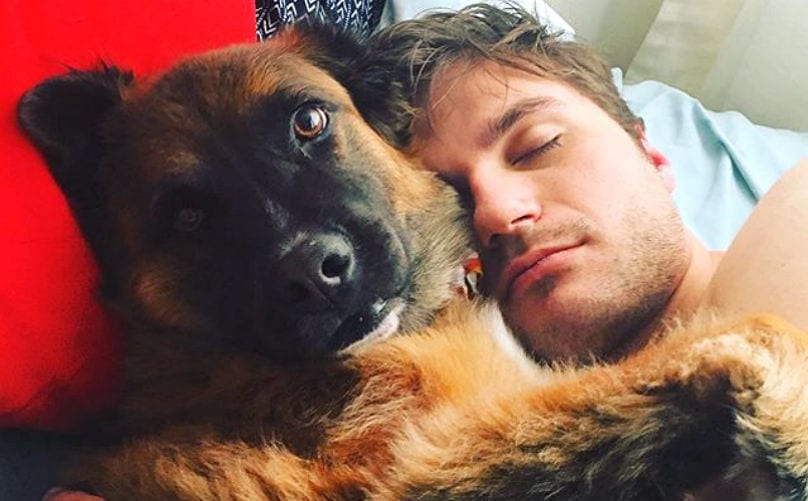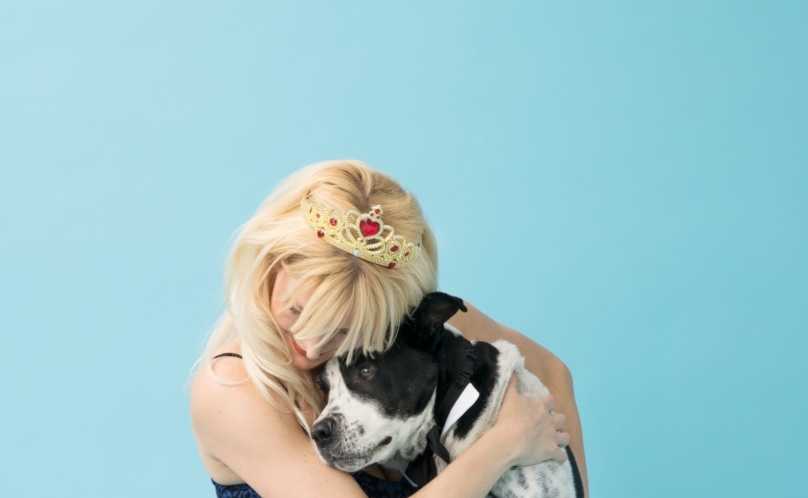Physically speaking dogs are built for guilt; they convey it with consummate ability. The hunched back, the tucked tail, and those big, doleful eyes – that is some first-rate guilt!


And yet, numerous studies surmise that dogs can’t actually experience guilt: that guilty feelings aren’t in a dog’s emotional repertoire.
However, ask any dog owner, and they’ll most likely tell you their dog is as emotional as Drake and as expressive as Meryl Streep. Suffice it to say, the debate over what dogs can or cannot feel is still a bone of contention.
[bp_related_article]
People have been wondering what dogs can emotionally experience for hundreds and hundreds of years. French philosopher and scientist Rene Descartes believed that all animals were like machines. That is, able to function in a certain way but incapable of feeling anything. Descartes didn’t even think dogs could feel pain. He would argue that the yelp of a kicked dog was the same as the clang of a kicked clock.


Then there’s Nicolas Malebranche who took Descartes’ theory and ran with it. Malebranche was a philosopher who said animals, “eat without pleasure, cry without pain, act without knowing it: they desire nothing, fear nothing, know nothing.” But this guy actually did kick a dog, so…
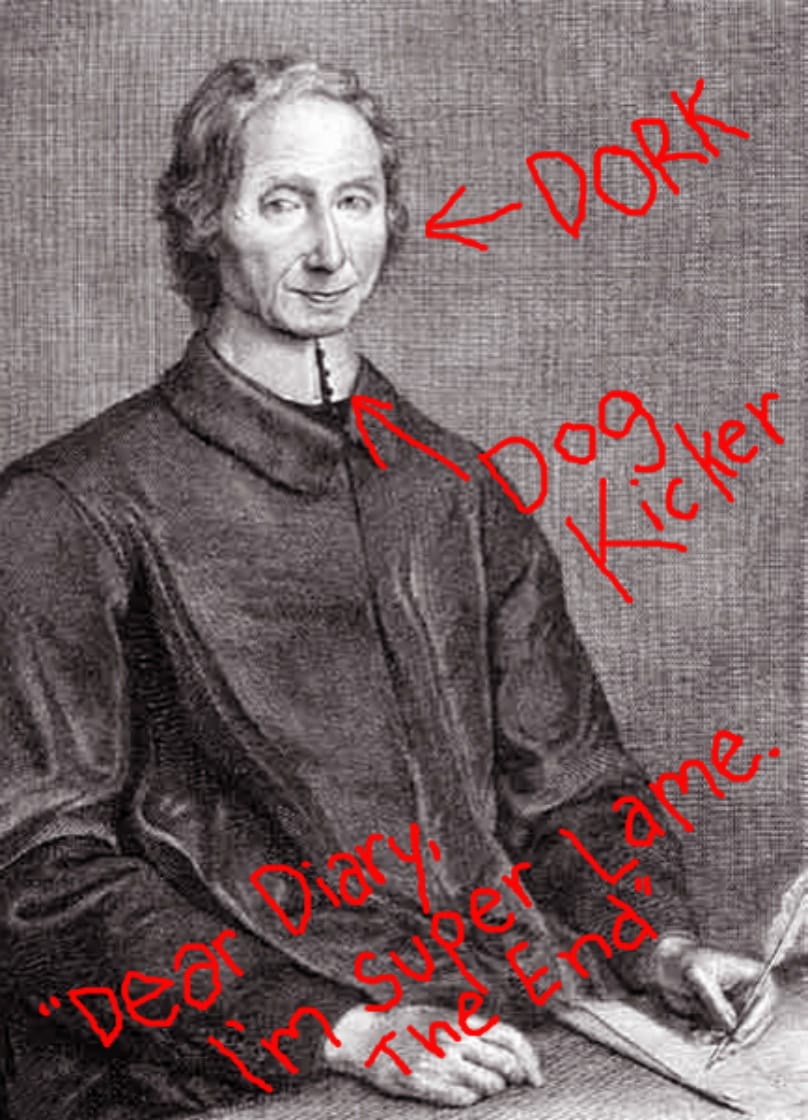

Luckily, science has come a long way since Descartes and Melebutthead. We know that of course dogs have feelings and emotions, and duh, dogs can feel pain. A dog is not a clock, you guys. In fact, the popular theory is that the mind of a dog is roughly equivalent to that of a two to two-and-a-half year old human.
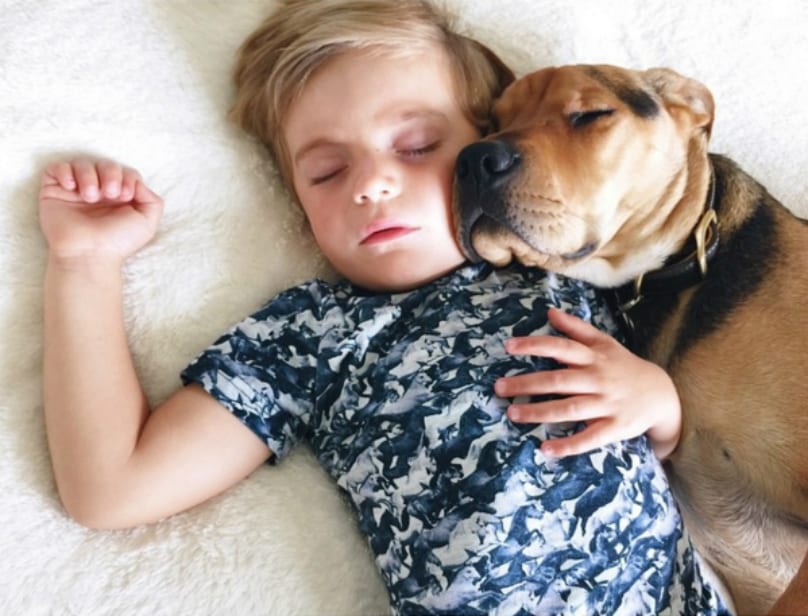

Adhering to that belief, it means our pups can feel excitement, distress, contentment, disgust, fear, anger, joy, suspicion, affection, and love, but will not experience shame, pride, guilt, or contempt.
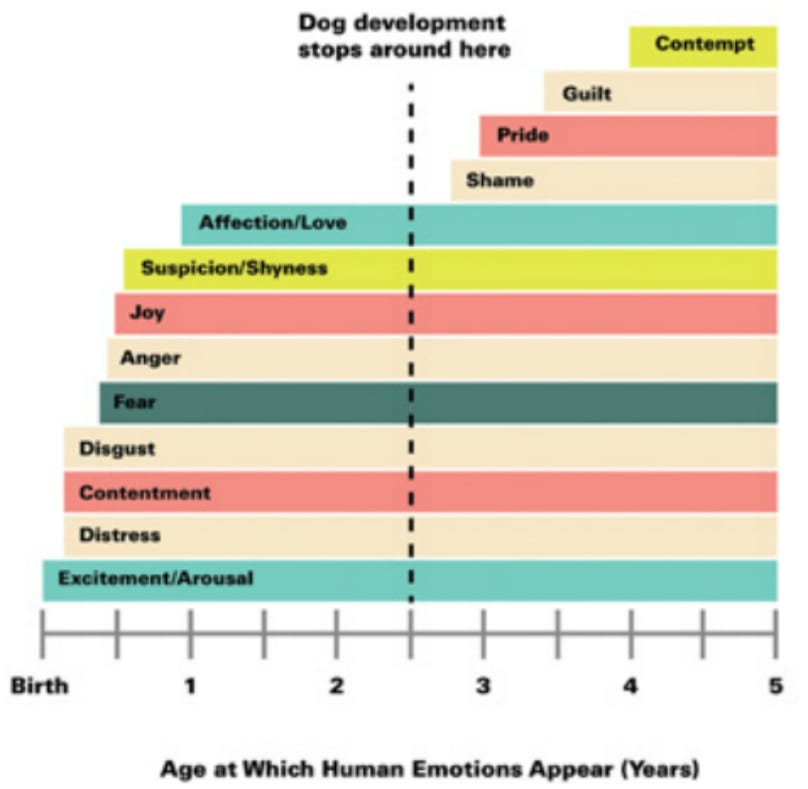

However, there are people like cognitive ethologist Dr. Marc Bekoff who argued in an op-ed for Live Science that there’s still be a possibility dogs can feel more complex emotions. We know that dogs have the same brain structures that produce emotions, the same chemical changes when experiencing emotions, and even have the same hormones that humans do. So what makes some so sure that a dog’s emotional development will peak and plateau?


Of course there are also (in my humble opinion) the real researchers: the dog owners. Sure, we may be guilty of anthropomorphizing… a lot, but watch my dog with a new toy in his mouth, strutting and prancing around the pawfice, showing it off to all his human and four-legged friends, and tell me that boy isn’t feeling proud of himself.



